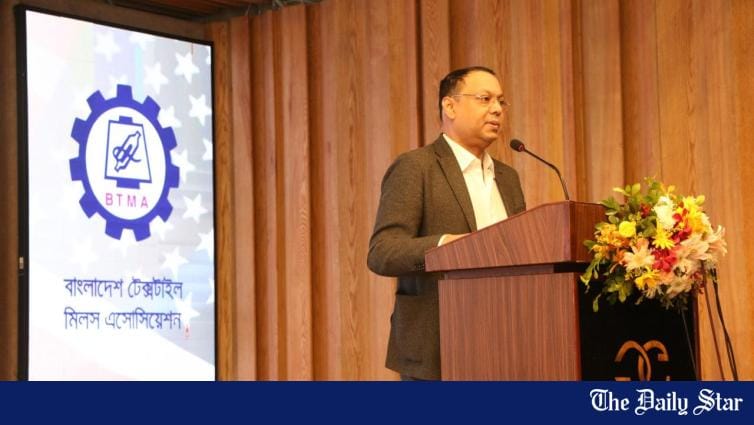Saif
Senior Member
- Messages
- 15,397
- Nation

- Axis Group


Garment sector resumes regular production after Eid: BGMEA
Nearly all garment factories under the Bangladesh Garment Manufacturers and Exporters Association (BGMEA) have resumed operations following the Eid-ul-Fitr holidays. 2,012 out of 2,024 factories – or 99.40 per cent – have reopened as of Wednesday, UNB reports citing a BGMEA statement i
Garment sector resumes regular production after Eid: BGMEA
FE Online Desk
Published :
Apr 12, 2025 18:07
Updated :
Apr 12, 2025 18:07

Nearly all garment factories under the Bangladesh Garment Manufacturers and Exporters Association (BGMEA) have resumed operations following the Eid-ul-Fitr holidays.
2,012 out of 2,024 factories – or 99.40 per cent – have reopened as of Wednesday, UNB reports citing a BGMEA statement issued on Saturday.
The highest concentration of garment factories is in the Gazipur and Mymensingh regions, where 851 out of 854 units are currently in operation.
In Savar, Ashulia and Jirani areas, 399 of 403 factories have resumed production. Besides, 186 factories are operational in Narayanganj, 320 in Demra, and 336 in Chattogram.
BGMEA data also reveals that 2,019 factories have already disbursed salaries for February, with only five factories – four in Dhaka and one in Chattogram – yet to do so.
As of now, 2,008 factories have paid salaries for March, either partially or in full. However, 16 factories are still pending full salary payments for the month, and 16 others have only paid partial salaries.
FE Online Desk
Published :
Apr 12, 2025 18:07
Updated :
Apr 12, 2025 18:07
Nearly all garment factories under the Bangladesh Garment Manufacturers and Exporters Association (BGMEA) have resumed operations following the Eid-ul-Fitr holidays.
2,012 out of 2,024 factories – or 99.40 per cent – have reopened as of Wednesday, UNB reports citing a BGMEA statement issued on Saturday.
The highest concentration of garment factories is in the Gazipur and Mymensingh regions, where 851 out of 854 units are currently in operation.
In Savar, Ashulia and Jirani areas, 399 of 403 factories have resumed production. Besides, 186 factories are operational in Narayanganj, 320 in Demra, and 336 in Chattogram.
BGMEA data also reveals that 2,019 factories have already disbursed salaries for February, with only five factories – four in Dhaka and one in Chattogram – yet to do so.
As of now, 2,008 factories have paid salaries for March, either partially or in full. However, 16 factories are still pending full salary payments for the month, and 16 others have only paid partial salaries.





